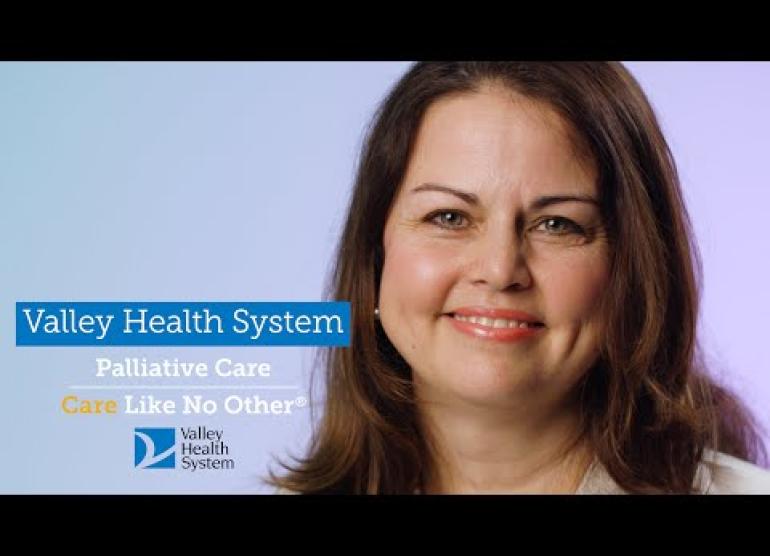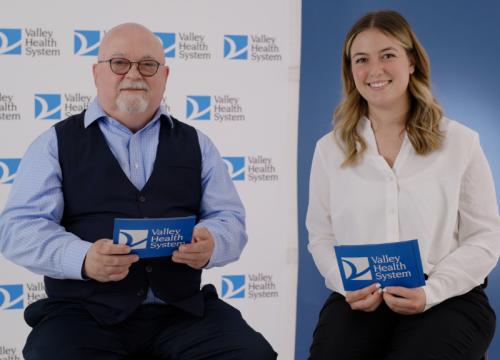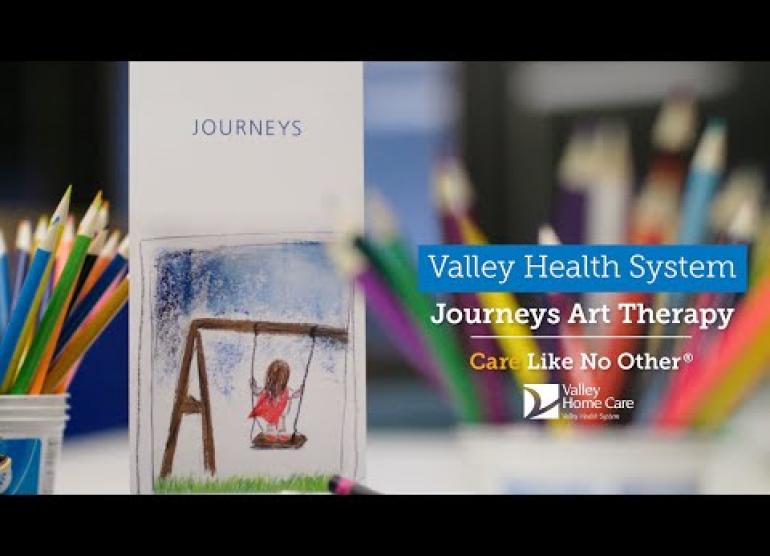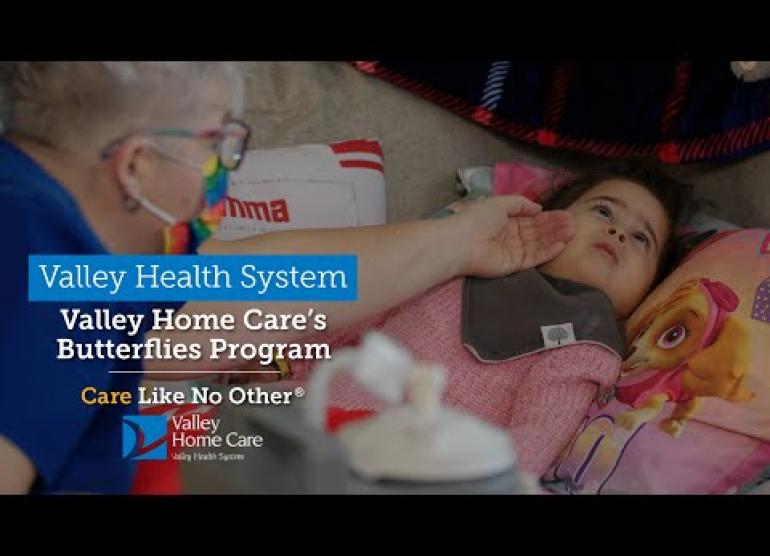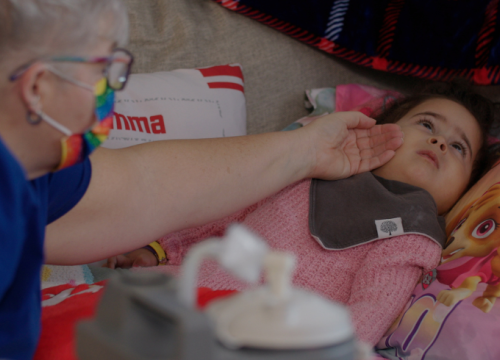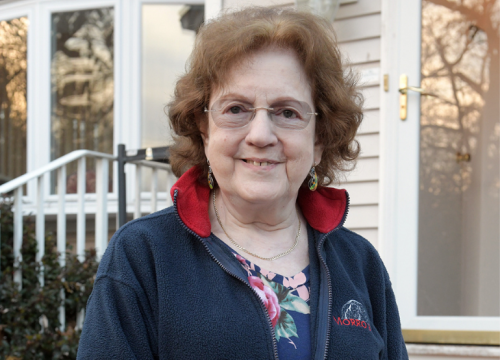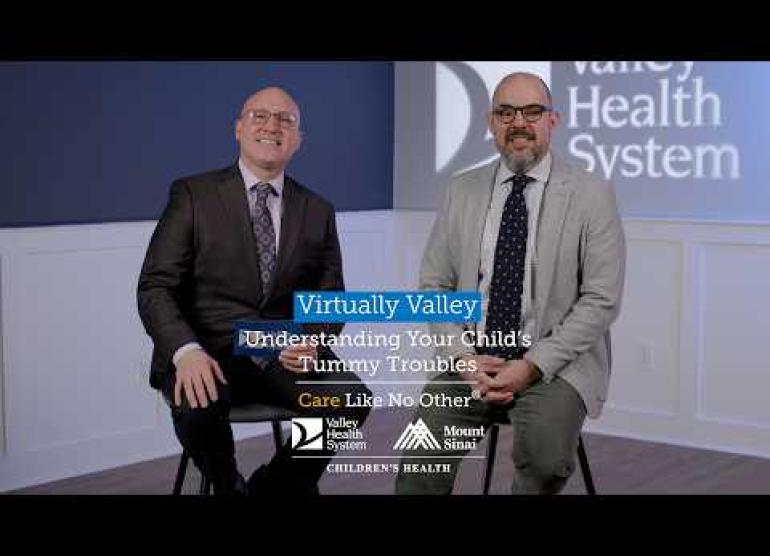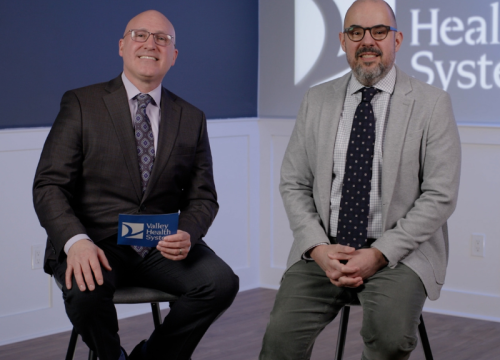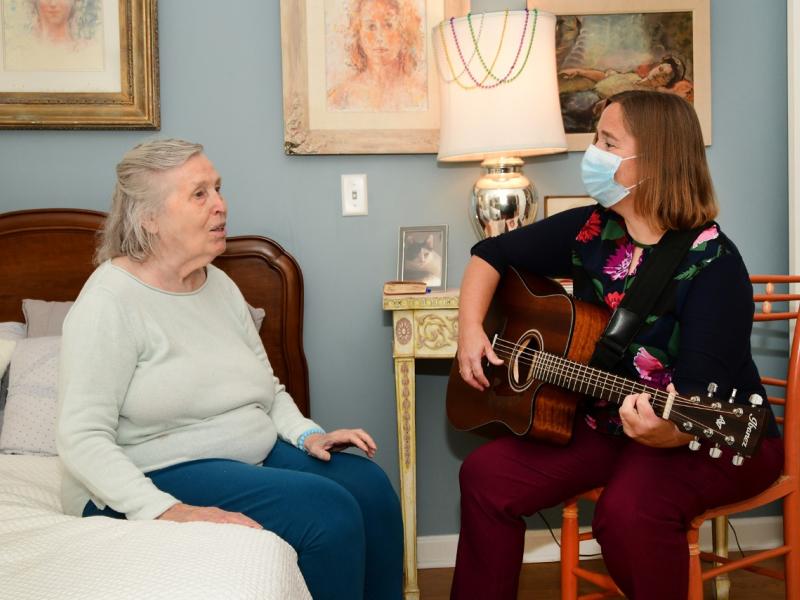
Did you know that music can be used to support healing? Through Valley Home Care, adult and pediatric hospice patients can participate in music therapy, which allows patients and families the opportunity to better express themselves, reminisce, engage in a positive activity, and experience enhanced comfort. Music therapy at Valley Home Care is more than a service. The music therapist is included in the hospice team and collaborates as an integral part of the patient's care.
What is the Valley Home Care Music Therapy service?
Valley Home Care's Music Therapy service was established in 2018 with a generous gift from David's Fund. Established in 1996 by Tom and Lucy Ott in loving memory of their son David, the fund was created to help others discover and know the joys and therapeutic benefits of music. Since November 2018, I have made over 700 hospice visits, and the program continues to be incorporated into patient care at Valley Hospice as well as Butterflies, a pediatric in-home palliative and hospice care program. Now as we begin our fifth year, philanthropic support has allowed us to expand education to staff on how music therapy can benefit not just our patients, but caretakers and loved ones as well.
I visit hospice patients for Valley Home Care in their homes, which include private residences, skilled nursing facilities, and assisted living facilities. I typically sing, play guitar, and sometimes provide rhythm instruments or recorded music. Those participating in the music therapy session might choose to listen, sing along, engage in rhythm, process memories related to the song, or make their own song. The patient’s most preferred music is most often used, and the music therapy visit is designed to encourage musical expression, social expression, and life review; create legacy projects; and bring about unique meaning to family bonds.
How does music support healing?
Music affects our bodies in many ways and has been found to stimulate more parts of the brain than any other experience. Physically music affects heart rate, respirations, blood pressure, pain response, and helps synchronize movement.
Music connects to physical, cognitive, and mental functions as it triggers the release of hormones through neurotransmitters. These hormones affect mood states, increase alertness, stimulate memory, enhance focus and/or sleep, and reduce anxiety and depression.
Why may someone choose this service?
Music therapy is often chosen because the patient has a history of enjoying music. They do not need to have been a musician or a singer, but perhaps music has been a meaningful part of their lives. A music therapist can help the patient maintain and experience music in familiar and new ways, as singing, playing, and listening to music can provide so many positive effects on the mind and body.
The music therapist can also choose music to help the patient engage in the life review process, which might include a legacy project, such as writing a song with the therapist, creating a musical timeline, or displaying a collection of meaningful song titles or song phrases. The life review process is a key part of hospice care used to help patients find meaning and achieve resolution. Life review supported by a music therapist has been found to bring about many important stories and memories, often more than talking alone, as music of certain times or meanings is cognitively bound to memories. The music therapist can help the patient process memories and can also then use more music to reflect the meaning of the patient’s life review discoveries.
What is the patient benefit of music therapy?
Key benefits for patients participating in hospice music therapy are addressing psychosocial needs and coping: enhanced self-expression, increased engagement with their surroundings, increased ability to cope mentally, physically, and spiritually, life review, and engaging in a positive mutual experience with their caregivers/family through music making.
There is also a benefit for caregivers and families of patients. Music can help many do what they haven’t done in years. Many families have commented on how the in-the-moment approaches of music therapy have given them a glimpse of their loved ones that they haven’t had since before illness affected their loved one.
How would someone request this service?
Music therapy can be requested through the hospice social worker on the patient’s interdisciplinary care team.








